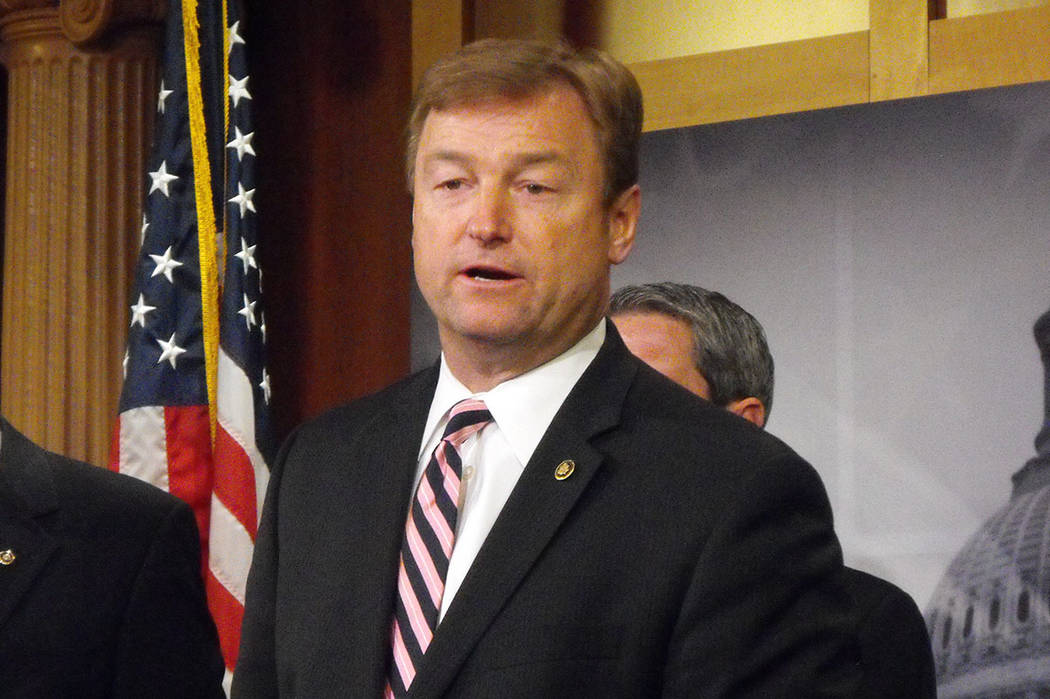Stalled Nevada judicial nominations show it’s time to rip up the blue slip tradition

Some traditions deserve to be scrapped.
Back in 2012, at the suggestion of U.S. Sen. Harry Reid, President Obama nominated well-regarded state District Court Judge Elissa Cadish to the federal bench. But Republican Sen. Dean Heller refused to sign the so-called “blue slip” that indicates a nominee has the support of both a state’s senators. Without that signature, Judiciary Committee Chairman Pat Leahy, D-Vt., refused to bring Cadish’s nomination to a hearing.
The blue slip isn’t in the Constitution, the U.S. Code or even the Senate rules. It’s a custom, a tradition, one designed to ensure a nominee has broad support from the people who tend to know her or him best.
Heller said at the time that he disagreed with Cadish’s position on the individual right to own firearms, based on her 2008 answer to a conservative group’s questionnaire. Ultimately, Cadish didn’t get her chance to serve on the federal bench.
Then in April 2016, again at Reid’s suggestion, Obama nominated UNLV Boyd School of Law Professor Anne Traum to the federal bench. Traum’s areas of specialty include criminal law, federal courts, appellate procedure and sentencing.
But once more, Heller withheld his blue-slip signature, and the nomination died without a hearing.
Some things have changed since then. Donald Trump has succeeded Obama. Reid has retired, replaced by former Democratic Attorney General Catherine Cortez Masto. Heller is now Nevada’s senior senator.
And now, the blue slip is on the other foot, as it were.
Heller wants President Trump to nominate former Nevada lawmaker Greg Brower, now a top FBI official, for a Reno federal judgeship. But, a source tells me, Cortez Masto has thus far indicated she won’t sign a blue slip for Brower.
Cortez Masto’s spokesman, Rey Benitez, said no nomination has yet been made, and declined comment on a potential Brower candidacy as speculative. Benitez said that conversations between Heller’s office and Cortez Masto’s office on nominees happen frequently, but declined to say whether any of those have involved Brower.
There are reasons why Cortez Masto might oppose Brower, beyond the fact that he’s a Republican.
For one, as the Review-Journal’s Jeff German reported Friday, the U.S. Equal Employment Opportunity Commission sanctioned Brower for allegedly retaliating against a former federal prosecutor who complained of sex discrimination while Brower was Nevada’s U.S. attorney. Brower was ordered to undergo training on sex discrimination and retaliation.
For another, Brower once represented a company sued by Cortez Masto when she was attorney general in connection with the illegal robo-signing scandal. Brower initially told 8NewsNow investigative reporter Nathan Baca he had nothing to do with the case, but later acknowledged he did work on the matter after being confronted with documents identifying him as a point of contact for the company under investigation.
But Brower has his supporters: Former Gov. Bob Miller, former Gov. and U.S. Sen. Richard Bryan and even Reid — Democrats all — are behind his potential nomination.
But if Cortez Masto declines to sign the blue slip, and if current Judiciary Committee Chairman Chuck Grassley, R-Iowa, keeps with tradition, Brower’s nomination will never get a hearing, much less a vote.
I said back in 2013 that the senior senator of a president’s party should have the privilege of suggesting nominees to the president, a privilege that shouldn’t be thwarted by the objections of a senator from the other party. The proper place to lodge objections is during debate on the floor of the Senate, and with a vote against the nominee.
The “blue slip veto” was wrong in 2012, and its wrong now. It’s long past time to get rid of this tradition.
Contact Steve Sebelius at SSebelius@reviewjournal.com or 702-387-5276. Follow @SteveSebelius on Twitter.












